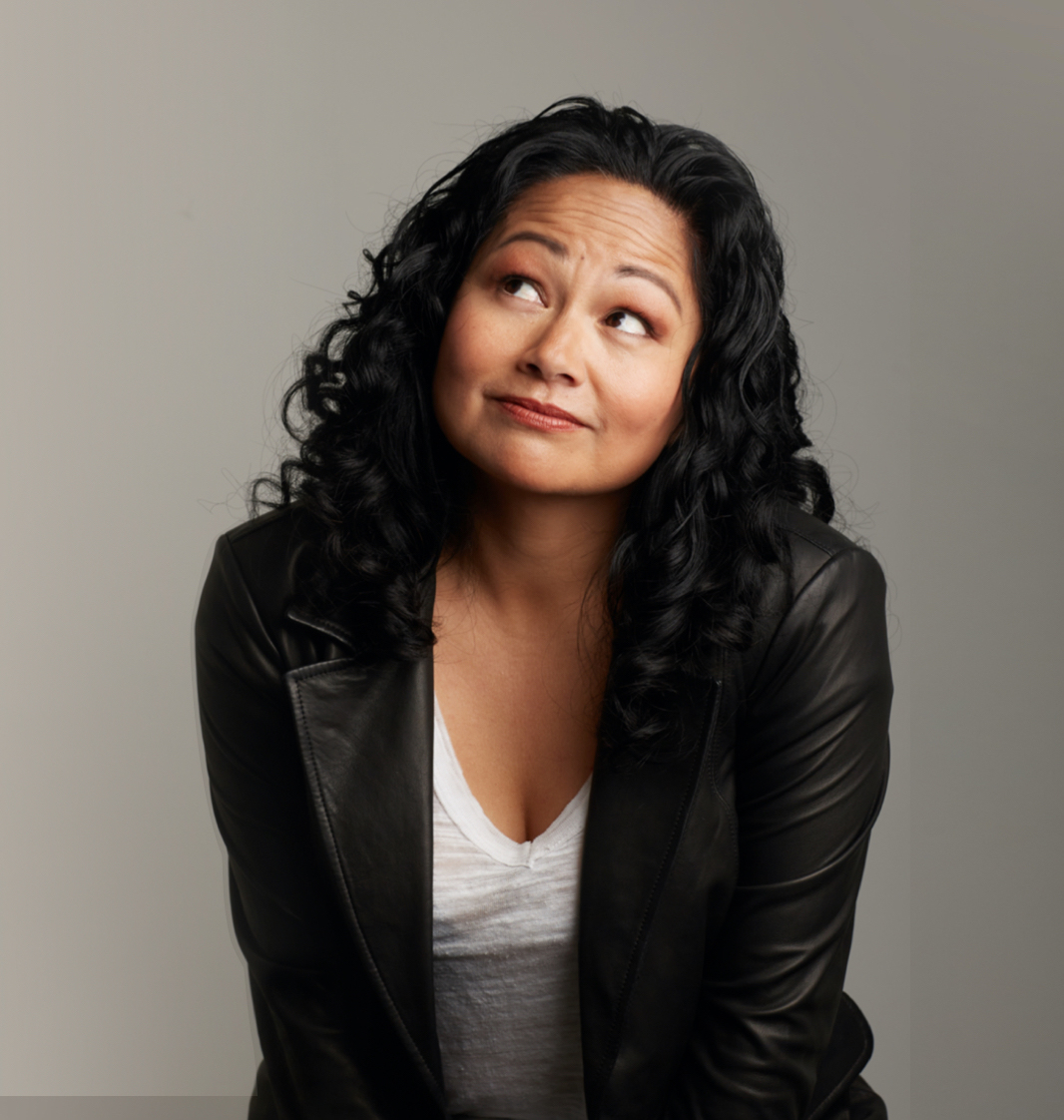Hi, I'm Dr Catalina, The Intimacy Doc
Ever wonder why sex is the last thing we talk about when it comes to health and wellbeing? It doesn’t even enter the conversation!
Play Video
I believe our sexual health is the number one indicator of our mental, physical, social, and emotional health. As a clinical psychologist for the past 20 years, I’ve worked with individuals affected by the big guns – cancer, death and dying. Through this work I witnessed the one key factor that motivates one to keep on living – relationships. Relationships are essential to who we are and how we experience life.
Unfortunately, sometimes relationships aren’t easy and sex can suck. I’m here to help fix that.
Meet the Intimacy Doc
My Story
“I’ve learned that true, authentic, pure intimacy and connection is not only what we all long for, it’s essential for our overall wellness.”
Aside from always being my sister’s tag-along, I’ve never been a follower. I’m naturally loud, proud, outspoken, and full of personality. Yet consistently throughout my life there were rules on how I should be, who I should be, and what was expected of me. My big personality wasn’t welcome in most of my educational or career environments. And quite honestly, I learned that in order to get what I wanted in life, I needed to disconnect from who I truly was. Being a first-generation immigrant, and the minority in every social circle I was ever part of played into this behavior. Who was I to complain or disrupt the status quo? I was lucky enough. I, after all, was completely privileged. What more could I possibly want? And what type of person was I to actually want something different?
My parents grew up on dirt floors in the Philippines, yet I was the one who bore witness to and experienced the abundant results of their hard work and risk. As the recipient of this life of freedom, there was a lot of self-imposed pressure to appreciate what I had, and what that appreciation should look like. Because of this, I learned the hard truth about conditional love. Results mattered. Status mattered. Judgements mattered. I had to do the most research, work the hardest, get the accolades, prove to myself (and in my mind, to others) that I was worthy of the privileged life I was given, prove I was worthy of love. My own desires didn’t matter. And even my basic human needs didn’t matter, unless I was pleasing others.
Being a clinical psychologist, researcher, and professor in the field of sexual health over the last 2 decades, I’ve learned that true, authentic, pure intimacy and connection is not only what we all long for, it’s essential for our overall wellness. It is a basic human need. Connecting to our own primal needs and desires, and allowing ourselves to be everything of ourselves with another person ultimately deepens our knowing of self and who we are at the most genuine level. Yet somehow expressing this basic need has become shameful. For something so essential to our existence as a species, it is unsettling that such a sacred topic is considered too taboo to speak of openly. I believe that by embracing and prioritizing our sexuality, we can break free from expectation and experience the transformation of holistic healing. It’s time we got real about the reality of sexuality. Because I believe that regardless of who we love or where we came from, exponential bliss is our absolute birthright.

I think you should know, I’ve always been super open about sex and sexuality. As a teenager and young adult, it’s ALL I talked about. And if I’m honest, it’s because I wasn’t getting any! I talked a big game, but my real life experience was a different story. I know I’m not the only one who has experienced lack of experience or exploration in the sexual department. My work and my own personal exploration has helped me embrace my sexuality, know my body, and understand what others may be feeling around the topic. I’m an open book and make the difficult or uncomfortable conversations feel easy.
If you’re looking for results, are open to a new way, and totally ready to ditch the sexual shame, you’re in the
right place.
Professional Details
- Licensed Clinical Psychologist in Illinois and New York (so I can see clients in these states and expats abroad)
- Associate Professor in Behavioral Sciences at Rush University Medical Center, Chicago
- Senior Lecturer in Clinical Psychology at University of Sydney, Australia
- Assistant Professor at Baruch College, CUNY, New York
- Published author in numerous scientific journals and media outlets
- Principal Investigator on numerous psychological studies, including Rekindle, a web-based psycho-sexual resource developed and tested for Australian cancer survivors and partners
- Leading a team of clinicians, researchers and NGOs to develop the first Sex Therapy for Latina Cancer Survivors, Aviva
- Postdoctoral Fellow at Mount Sinai School of Medicine, New York, New York
- PhD in Counseling Psychology, Colorado State University, Fort Collins, CO
- MS in Psychology from The Catholic University of America, Washington, DC
- BS from Indiana University, Bloomington, Indiana
Personal Details
Outside of the virtual therapy room, I’m pretty much the same except typically on the water sailing, or traveling to somewhere I can sail. I don’t keep my mouth shut, my head down, or my opinions to myself. I love to laugh and honestly, I’m pretty funny. My family and friends are my island retreat and without them, I wouldn’t be able to do this work.

Dr. Catalina's Publications
- Wells, R, Steel, Z, Hunt, C, Saidyousef, O, Abujado, F, Lawsin, C (in press). An ecological model of adaptation to displacement: Indvidual, cultural and community factors affecting psychosocial adjustment among Syrian refugees in Jordan. Global Mental Health.
- Hoyt, M, Gaffey, A, Wang, A, Litwin, M, Lawsin, C (2018). Sexual well-being and diurnal cortisol after prostate cancer treatment. Journal of Health Psychology, April published online.
- Lambert, S, McElduff, P, Levesque, J, Lawsin, C, Jacobsen, P, Turner, J, Girgis, A (2017). A systematic review and meta-analysis of written self-administered psychosocial interventions among adults with a physical illness. Education and Counseling, 100 (12), 2200-2217.
- Graham, L, Hullmann, S, Lawsin, C, Wilson, N, Wood-Molo, M, Ording, J, Ginder, C, Daley, K, Kent, P (2017). Pediatric Oncology Provider Perceptions of Fertility Preservation in Adolescent and Young Adult Females with Cancer. Women’s Reproductive Health, Special Issue on Cancer and Women’s Reproductive Health, Volume 4, 1-13
- Ruth, W, Steel, Z, Hilal, M, Lawsin, C (2016). Psychosocial Concerns Reported by Syrian Refugees Living in Jordan: A Systematic Review of Unpublished Needs Assessments. British Journal of Psychiatry, 1-8.
- Dobinson, K, Hoyt, M, Seidler, Z, Beuamont, A, Hullman, S, Lawsin, C (2016). A Grounded Theory Investigation into the Psychosexual Unmet Needs of Adolescent and Young Adult Cancer Survivors. Journal of Adolescent and Young Adult Oncology, 5,2, 135-145.
- McMillan, K, Butow, P, Turner, J, Yates, P, White, K, Lambert, S, Stephens, M., Lawsin, C, (2016) Burnout and the Provision of Psychosocial Care Amongst Australian Cancer Nurses. European Journal of Oncology Nursing, 22, 37-45.
- Seidler, Z, Lawsin, C, Hoyt, M, Dobinson, K (2015). Let’s Talk About Sex After Cancer: Exploring Barriers and Facilitators to Sexual Communication in Male Cancer Survivors, Psycho-Oncology, Sep 25.
- Lambert, S, Beatty, L, McElduff, P, Levesque, J, Lawsin, C, Turner, J, Jacobsen, P, Girgis, A (2015). Evaluations of written self-administered psychosocial interventions to improve psychosocial and physical outcomes among adults with chronic health conditions: a meta-analysis. Psycho-Oncology, 24, 73.
- Wells, R, Wells, D, Lawsin, C (2015). Understanding psychological responses to trauma among Syrian refugees: The importance of measurement validity in cross cultural settings. Journal and Proceedings of the Royal Society of New South Wales, 148 (No 455, 456), 60-69.
- Colomar, M, Tong, V, Morello, P, Farr, S, Lawsin, C, Dietz, P, Aleman, A, Berrueta, M, Mazzoni, Agustina, Becu, A, Buekens, P, Belizán, J, Althabe, F, Mazzoni, Agustina, Becu, A, Buekens, P, Belizán, J, Althabe, F (2014). Barriers and Promoters of an Evidenced-Based Smoking Cessation Counseling During Prenatal Care in Argentina and Uruguay. Maternal and Child Health Journal, November, 1-9.
- Lawsin, C, McMillan, K, Butow, P, Turner, J, Yates, P, Lamberts, S, White, K, Nelson, A, Stephens, M (2013). Assessment of the current implementation and barriers to uptake of the guidelines for the psychosocial care of adults with cancer according to cancer nurses in Australia. Journal Clinical Oncology, 31, (suppl; abstr e20615).
- Lambert, S., Regan, T, Turner, J, Chandler, H, Britton, B, Chambers, S, Smith, E, Lawsin, C, Bonevski, B, Keyser, K. (2013). You need something like this to give you guidelines on what to do. Supportive Care in Cancer, 21, 3415-3460.
- Penney, E. & Lawsin, C. (2013). Application of the MODE model to implicit weight prejudice and its influence on expressed and actual behavior among college students. The Journal of Applied Social Psychology, 43; S2, E229-36.
- Lambert, S, Harrison, J, Smith, E, Bonevski, B, Carey, M, Lawsin, C, Paul, P, Girgis, A (2012). The unmet needs of partners and caregivers of adults diagnosed with cancer: a systematic review. BMJ Supportive & Palliative Care, online first July 6.
- Bullen, T, Sharpe, L, Lawsin, C (2012). Body image as a predictor of psychopathology in surgical patients with colorectal cancer. Journal of Psychosomatic Research, 76, 3, 459-63.
- Lawsin, C, Erwin, D, Bursac, Z, Jandorf, L (2011). Heterogeneity in Breast and Cervical Cancer Screening Practices Among Female Hispanic Immigrants in the United States. Journal of Immigrant and Minority Health, 13, 834-841.
- DuHamel, K, Mosher, C, Winkel, G Labay, L, Rini, C, Markarian, Y, Austin, J, Greene, P, Lawsin, C, Rusiewicz, A, Grosskreutz, C, Isola, L, Moskowitz, C, Papadopoulos, E, Rowley, S, Scigliano, E, Burkhalter, J, Hurley, K, Redd, W (2010). Randomized clinical trial of telephone-administered cognitive-behavioral therapy to reduce PTSD and distress symptoms after hematopoietic stem cell transplantation. Journal of Clinical Oncology, 28 (23): 3754-3761.
- Lawsin, C., DuHamel, K, Itzkowitz, Brown, K., Lim, H., Thelemaque, L., S. Jandorf, L. (2009). Communication Between Colorectal Cancer Patients and Their Siblings: Discussions Regarding CRC Risk. Cancer, Epidemiology, Biomarkers & Prevention, Nov; 18 (11):2907-12.
- Christie, J, Jandorf, L., Itzkowitz, S., Halm, E., Freeman, K., King, S., Dhulkifl, R., McNair, M., Thelemaque, L., Lawsin, C., Duhamel, K. (2009). Sociodemographic Correlates of Stage of Adoption for Colorectal Cancer Screening in African Americans. Ethnicity and Disease, 19: 323-329.
- Lawsin, C., DuHamel, K, Itzkowitz, Brown, K., Lim, H., Thelemaque, L., S. Jandorf, L. (2007). Demographic, Medical, and Psychosocial Correlates to CAM Use among Survivors of Colorectal Cancer. Supportive Care in Cancer, May;15(5):557-64.
- Lawsin, C., DuHamel, K, Rakowski, W., Weiss, A., Jandorf, L. (2007). Colorectal Cancer Screening among Low-Income African Americans in East Harlem: A Theoretical Approach to Understanding Barriers and Promoters to Screening. Journal of Urban Health, 84(1):32-44.
- Rini, C., Lawsin, C., Austin, J. DuHamel, K., Markarian, Y., Burkhalter, J., Labay, L., Redd, W. (2007). Peer Mentoring and Survivors’ Stories for Cancer Patients: Positive Effects and Some Cautionary Notes. Journal of Clinical Oncology, 25(1): 163-6.
- Lawsin, C., Borrayo, E., Edwards, R., Belloso, C. (2007). Community Readiness to Promote Latinas’ Participation in Breast Cancer Prevention Clinical Trials. Health and Social Care in the Community, 15(4), July, 369-378.
- Borrayo, E., & Lawsin, C., Coit, C. (2005). Latinas’ appraisal of enrollment and adherence to breast cancer prevention clinical trials. Cancer Control, Cancer, Culture and Literacy Supplement, 107-110.
- Borrayo, E., Thomas, J.J., & Lawsin, C. (2004) Cervical cancer screening among Latinas: The importance of referral and parallel cancer screening behaviors. Women & Health, 39, 13-29.
Better intimacy starts here
Don’t worry, I get it: relationships and intimacy can be hard to navigate. But it’s time for you to experience your absolute birthright—exponential bliss.
So let’s talk about it. Let me share with you my expertise.
